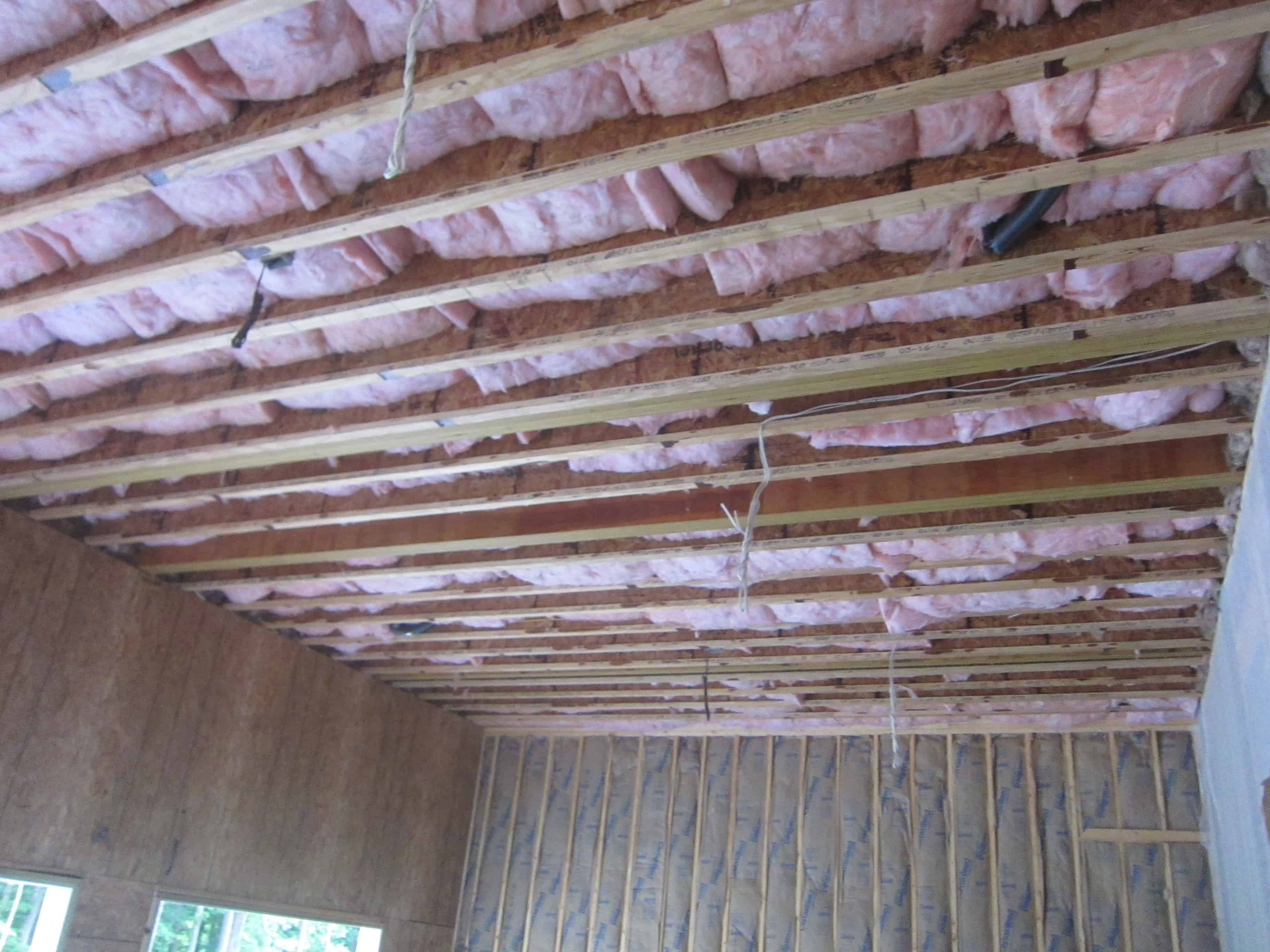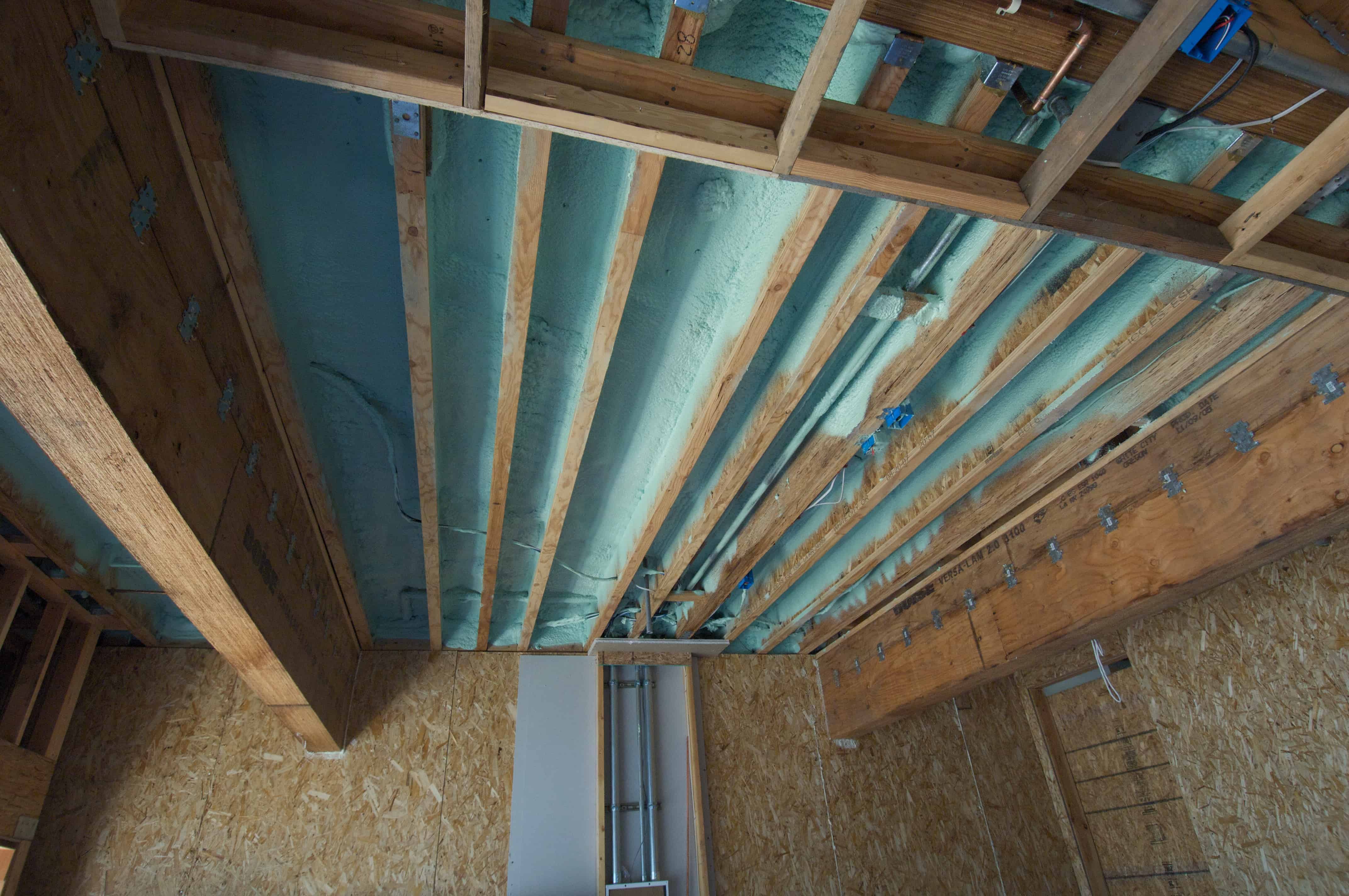Insulate Your Garage Against One of Lathrop’s Unexpected Freezes to Protect Your Pipes
It’s still pretty nice outside in Lathrop, even though the calendar says it’s fall. In fact, the climate here tends to be pretty mild and comfortable year round, which makes it easy for families to enjoy all our many parks have to offer. But, just because we don’t have some of the snowy weather that they do just north of us, doesn’t mean that it can’t get chilly enough to freeze here.
The fact that we aren’t used to getting extreme cold here might be the exact reason why we need to think about insulating our homes—it only takes one unexpectedly cold night for pipes to freeze and burst, leaving you with a watery mess when it thaws. But it’s not just the exposed pipes you should be worried about. In fact, insulating your garage just might be the best way to protect your entire home from those infrequent, but potentially damaging, cold spurts we get.
Families in Lathrop typically use their garages to store the family car, tools, or maybe boxes of out-of-season clothes. But, sometimes, we store more valuable items; ones that might be especially sensitive to moisture and extreme temperatures. The garage often has exposed piping, or even a work sink. My garage is also home to my water heater’s closet and shares a wall with our dining room. Whatever you may use your garage for, insulating it’s a good idea, for the protection of the stuff stored there and the rest of your home.
If Nothing Else, Insulate Your Garage Walls

A fully insulated garage | Image courtesy flick’r user Jesus Rodriguez
Lathrop is a family town. And where there’s families, there’s kids with lots of stuff—all of which eventually ends up piled into the garage against the walls. That’s why if you’re going to insulate any part of your garage, the walls should be your primary concern. And, it won’t just keep all your Christmas decorations from getting frosty, it’ll also help the rooms on the other side of the walls to stay nice and warm as well. The benefits of insulating your garage walls are:
- Climate control: Some items, like your kids’ electronics or art, can be damaged by the moisture and extreme temperatures your garage is subjected to—like on our unexpectedly and somewhat out-of-season rainy Sunday this last weekend. An insulated garage also helps prevent cold air and moisture from coming into the main hub of your house by acting as a moisture and heat barrier.
- HVAC and plumbing protection: Often, a water heater, HVAC unit, or plumbing pipes are exposed to, or share a wall with, the garage. This is great for access, but not great for protecting your HVAC and plumbing from the elements. Extreme cold can cause pipes to burst and freeze equipment, sometimes causing costly damage. But insulated garage walls help provide protection and allow equipment to operate at its optimal temperatures by forming an insulative area around pipes.
- Insulation for other rooms inside your home: At least one of the walls of your garage is sure to be shared with an interior room of your house. No matter what’s on the other side of that wall, insulation inside of it will add a layer of protection, and even soundproofing, that’ll make the inside of your home much more comfortable.
Insulating Your Garage Ceiling
If you’ve decided it’s a good idea to insulate the walls of your garage (and it is), should you also do the ceiling? If there’s a living space above it, then the answer is an emphatic yes, and here’s why:
- Protection from carbon monoxide: If you actually use your garage to park your car, there’s a risk that carbon monoxide can infiltrate your home, poisoning your family’s living spaces. To prevent this, the walls around living spaces should have an air barrier that prevents the migration of toxic fumes through the walls.
- No more cold feet: It may not be your wedding day, but if you have a bedroom above your garage, the floor can get awfully cold in the winter without a layer of insulation, when Lathrop temps tend to dip to around 36 degrees. Not quite freezing, but pretty darn cold. Adding batting or spray foam insulation to the ceiling can insulate the living space from the cold that comes in through the garage.
- Keep it quiet: If you’re sleeping above a garage, you won’t be for long when your teenager comes in late from a school event at Lathrop High—just the noise from the garage will be enough to wake you if the ceiling isn’t insulated. Insulation can dampen sound between spaces—vital for a garage that is often the center for band practice or construction projects.
Garage Doors: To Insulate or Not Insulate
Insulating the door of your garage may not seem like it should be at the top of your home repair to-do list, or maybe not on there at all. But, insulating the door can be a huge benefit to the overall climate-controlled environment you’re trying to achieve. The door of your garage is one of the walls of the enclosure, after all, and the gateway from the outside world to your home’s interior.

Spray foam insulation in the ceiling of a garage | Image courtesy flick’r user Giles Douglas
As new construction begins around our little city of Lathrop, at the River Islands and River Walk communities, more and more families will be moving in. Protecting your home from the potential of increased traffic noise outside will become more and more important. Insulating the garage door also conditions your garage, and, it can be an easy process if you pick the right insulation for your door type, such as:
- Foam board insulation: This type is probably best suited for wood and frame-type garage doors. The rigid board can easily be cut to fit the recesses in the door frame, and then be secured in place.
- Fiberglass batting: Flexible sheets of batting can be used on a steel frame door by squeezing it through the frame and around panels.
- Reflective insulation: This type can be used for either wood panel or flat garage doors by gluing or taping them directly to the door.
Whichever type of insulation you use, insulating your door will ensure added protection from the weather—and from street noise.
Ready to Insulate? Hire a Professional.
There are a ton of DIY tutorials out there for insulating your garage, and they cover everything from air sealing to insulation batting to fire proofing. While insulating the walls of your garage can be done on your own, if you’re new to home improvement, and you need to have your garage insulated before the winter weather gets here, I suggest you talk to an expert. Here’s why:
- They can tell you what type of insulation you need: There are lots of different types of insulation out there, and the application can often dictate what type should be used. A professional installer can recommend the best product for acoustical performance, moisture prevention, energy efficiency, and cost effectiveness.
- They’ll know where, and if, you need a vapor retarder: Depending on the climate, and where the insulation is to be installed, a professional has the knowledge of what type of vapor barrier may need to be used.
- They’ll install your insulation right the first time: If you’ve ever handled fiberglass batting before, you know it can be pretty unpleasant stuff. It can also be hazardous if inhaled. That’s why it’s important to hire a professional that knows how to handle insulation safely, as well as install it correctly for optimal performance.
Insulating a garage is a pretty hefty job that’s best left to the professionals if you aren’t absolutely sure you know what you’re doing, especially if you want to insulate the ceiling of your garage. It can be a labor intensive process, and may involve removing drywall and any existing fiberglass, after which it needs to be air sealed, insulated, and a carbon monoxide detector installed. Garage doors, while not quite as complicated to insulate, can be a hassle as well, and all your work may be rendered useless if not done correctly.
The garage is a great space in your home—and can be used for almost whatever you want, from housing your car to storing your child’s baby clothes and keepsakes, or maybe even an art studio for you to escape to and work on your submission for an upcoming art festival in San Fran, just 70 miles west of Lathrop. Whatever the case, it can definitely benefit from being fully insulated.
You can do it yourself, of course, but as any busy parent knows, finding the time and energy to take on such a big job is often difficult. And why try when you can easily and affordably find a local installer to do the job for you? So give a local insulation professional a call and in no time at all you can start enjoying your nicely insulated garage, knowing you’ve added value, safely, and efficiency to your home.
Don’t risk spending money on the wrong tools and insulation, call the experts at Bell Brothers to find out how best to insulate your garage.

